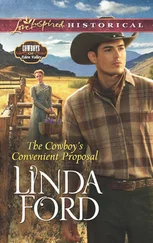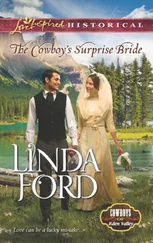Judd leaned over to read:
WANTED: A GOOD MAN TO TEACH INVALID LADY FINER ASPECTS OF LANGUAGES AND ARTS. ROOM AND BOARD IN EXCHANGE FOR LESSONS. MUST BE A TRUE GENTLEMAN.
“A tutor?” Never expected that.
“Miss Louisa’s interested in learning.”
“How old is Miss Louisa?”
“Well, lessee. I think Miss Madge must be eighteen now, though she has more smarts than many twice her age. I guess that would make Miss Louisa nineteen. The three girls are pretty close in age.”
“Three?”
“Yup. There’s Sally, too. Guessin’ she’s seventeen. Miss Louisa’s the prettiest, but in my opinion, Miss Madge, now she’s the one a man should consider. Why, if I was twenty years younger…”
Judd stared as the man’s voice trailed off and red crept up his neck before he cleared his throat and shifted away.
“You say there’s been plenty of interest in the job.”
“Mrs. Morgan is particular. Hey, lookee, there’s number four now. Maybe ask him how it went.”
“I guess I might.” In private. He left the store, strode toward the approaching car and signaled the man to stop. “Hear you were out to the Morgan place.”
“Indeed I was. A most promising situation. I didn’t meet Miss Morgan, but I understand she is frail but eager with a goodly desire to learn. I believe her interests lean toward art history and literature, though I’m certain with a little guidance she will develop an equal keenness for science and Latin.” He rubbed his hands together in anticipation. “The mother is overprotective, which might pose a handicap, but I believe I could have success in overcoming that.” He sat up straighter, though he was small, so his effort to look important lacked impact.
“Well, good luck to you.” Judd stepped back and assessed the information as the man drove away. His years in university might prove productive after all, even if he hadn’t pursued being a teacher.
Yes, indeed, this job would serve his purposes very well.
A week later Madge sang as she hung another batch of laundry. Father had had no idea how the big room upstairs would be used, strung now with row after row of lines, providing a place to dry things away from the invading dust carried by the relentless winds buffeting the house and all God’s creatures.
It was her number one selling point in her offer to do laundry for others—the promise of sparkling white linens. The only way she could guarantee that was by hanging them indoors, out of the dust-laden wind.
She finished pegging the sheet on the line, removed the earlier items, now dry, and started ironing. Her pet cat, Macat, who kept her company as she worked, settled on the nearby stool and began a grooming ritual.
Doing laundry day after day was hard, relentless work, but it was satisfying to produce stacks of fresh sheets and crisp shirts she delivered in town to those people who still had money to pay for her services. Thank God for the few who seemed unaffected by the Depression. The coins she earned slowly collected in the old coffee can downstairs.
Through the open window she watched Sally dump the bucket of kitchen scraps to the chickens, then pause to look around. Her younger sister was quiet and content. Louisa, her older sister, seemed satisfied with her life, as well. Madge was the one with a restless drive to get things done. Without Madge’s constant prodding and working, the others might be lulled into complacency until the house was taken from them, never letting the specter of being homeless cross their minds. Even Mother’s concern didn’t match Madge’s determination that the family not end up in such a state.
Madge had managed to persuade one more lady to let her do part of her laundry—only the sheets and table linens, which she hesitated to hang out in the dust. Madge appreciated the job but it didn’t make up for the loss of wages her work for Mrs. Crebs had brought in.
As she folded items, she muttered to Macat, who watched her every move. “It’s going to be close.” In fact, too close for comfort after having been forced to buy a new tire for the car. She clattered down the stairs, Macat meowing at her heels. She ignored the cat’s demands, paused on her way through the kitchen to say hello to Sally, who sat surrounded by the mending, and Louisa in her lounge chair reading, with her little dog, Mouse, curled on her lap.
Madge hurried to the front room and Father’s desk. She opened the drop lid, scooped up the coffee can, sat down and slowly counted the change and few bills. Her cheeks grew taut, and she felt the heat seep from them. “It’s not all here.” She couldn’t believe it. Who would steal from their savings?
She scooped up Macat and held her close, comforting herself in the silky fur.
Mother paused at the doorway. “Madge?”
Madge struggled to form a thought. A word. “The money. Missing. Stolen.”
Mother slipped into the room and closed the door behind her. She patted Madge’s shoulder. “It’s okay. I took it. I meant to tell you but I—”
“Took it? Why?”
Mother glanced around to make sure they were alone, then whispered. “For Louisa.”
“More medicine?” Madge wouldn’t resent the expense. Louisa had had pneumonia a number of times. The disease left her lungs weak and required all of them to guard her health. Sometimes it seemed, no matter how hard Madge worked, Louisa’s illness ate up way too much of the money. Or the car bit into their savings—though she had figured out how to fix tires on her own, how to adjust the throttle and choke and how to wire things together in hopes they would limp through a few more days. She wished they still had a horse so she could resort to using a wagon. Mentally, she put it on the list. Perhaps someone would trade a horse for her labors. Then she’d need to figure out a way to get enough hay for another animal. She kept her attention on scratching Macat behind the ears, afraid Mother would see her worry and frustration if she lifted her head.
“Not medicine, dear.”
“Then what?” Medicine she understood. What else could there be? Though Mother had a habit of underestimating the expenses and the limited resources for earning money. Father had always protected Mother from the harsh realities of life, so even in these hard times, Mother remained optimistic, always believing things would somehow, as if by magic, fix themselves.
“I want to help Louisa find a husband.”
“You bought a man?” Madge couldn’t decide if she was more intrigued or shocked. How did one go about purchasing a man? How much did it cost? Did you get to select size, color, style? Her thoughts flitted unexpectedly to the man she had bumped into in town. She blinked away the memory of black eyes and dark hair and returned to considering Mother’s announcement.
If one bought a man, was there a money-back guarantee?
Mother pulled a clipping from her pocket and hesitated. “You must promise not to say anything.”
“Certainly.” Her curiosity grew to overwhelming proportions.
Mother unfolded the scrap of paper and handed it to her. “I placed this ad in a paper.”
Madge read the notice. Then she read it again. Mother had advertised for a teacher for Louisa. “It says nothing about marriage.”
Mother sat in Father’s chair—a sure sign of her mental state. Madge watched her closely. Was she hiding something?
“You know there are no eligible young men around. Most of them are in relief camps.”
Madge nodded. The government had created camps for the unemployed young men where they built roads, cut trees and did a number of labor jobs. The idea of work camps was fine. Give young men a place to sleep, food to eat and a job. Get them off the streets. But to her thinking, it only hid the problem. She bit her tongue to keep from saying what she thought of many of the prime minister’s political moves. Surely a smart man, a man from their own province even, could do something to stop this horrible decline.
Читать дальше












